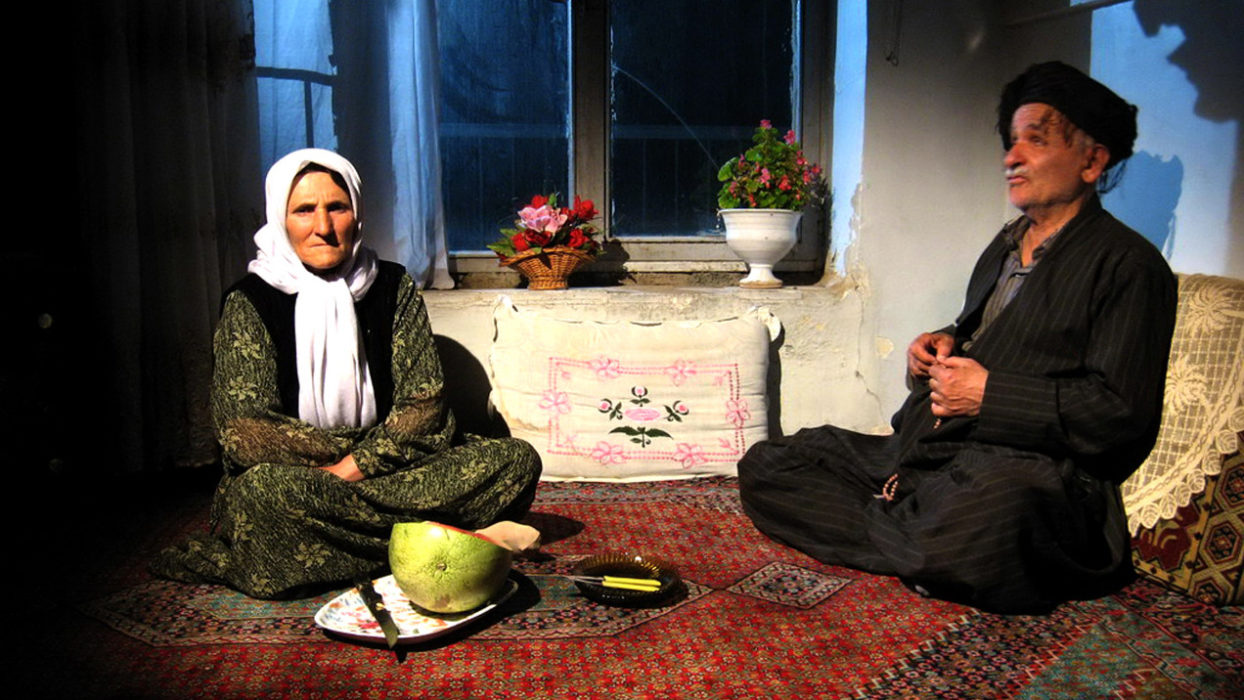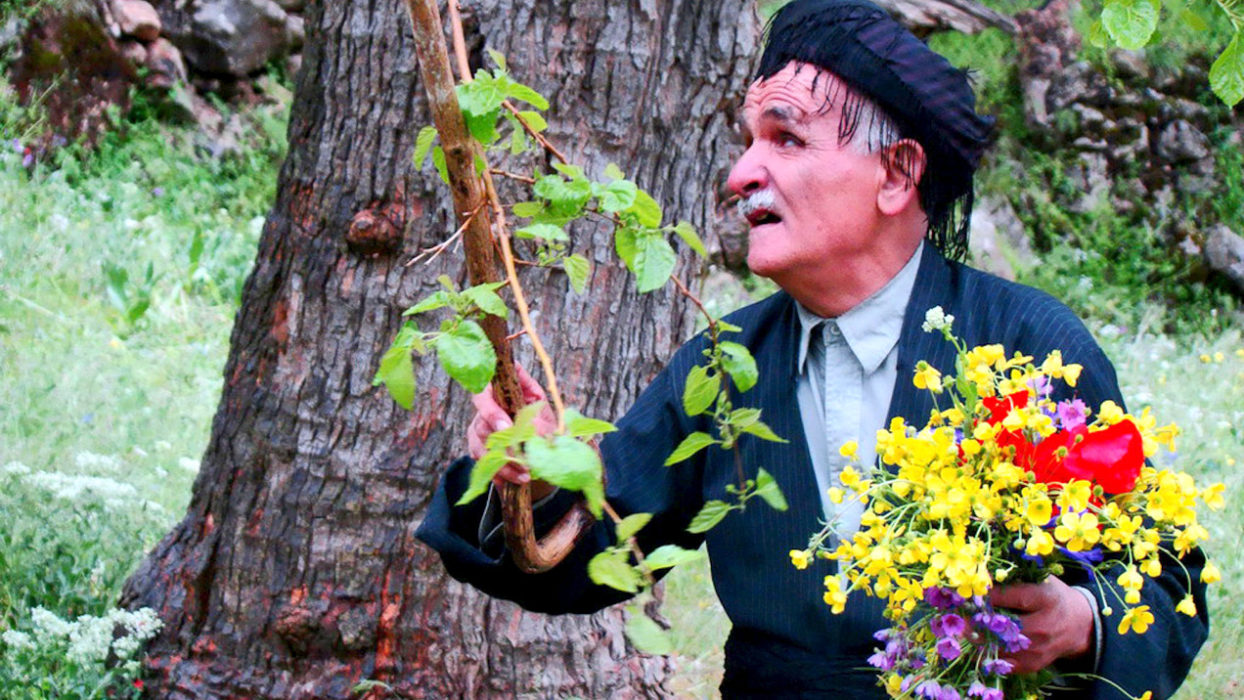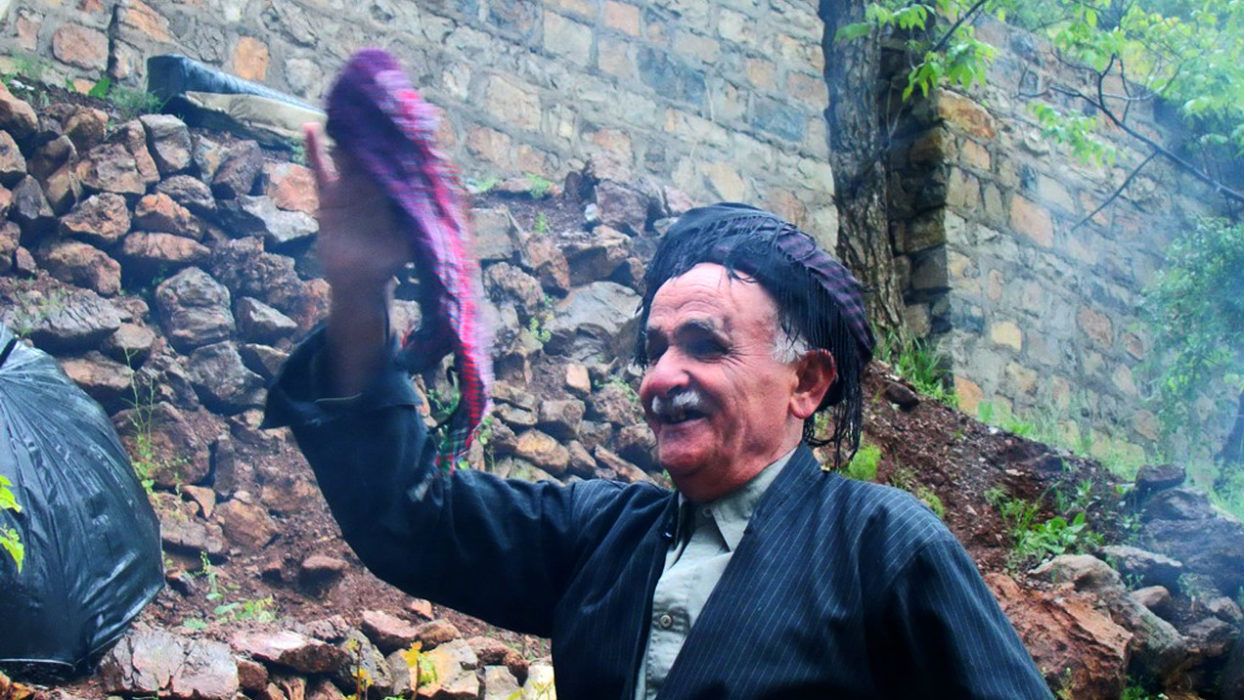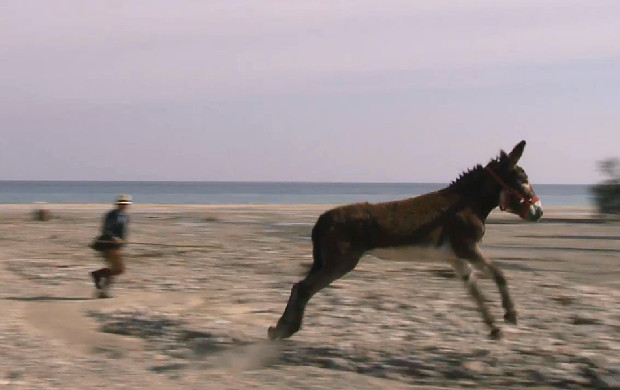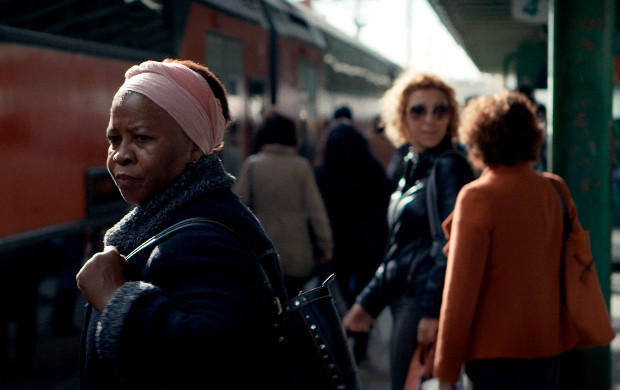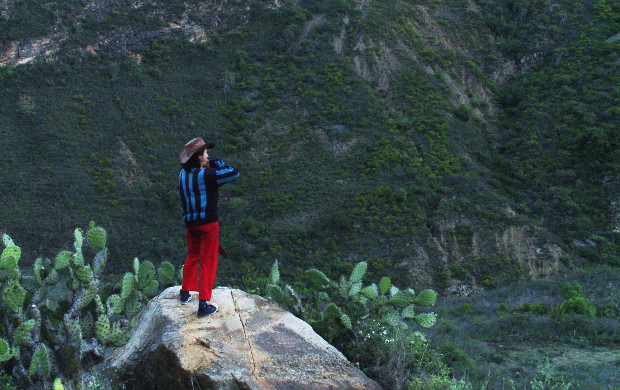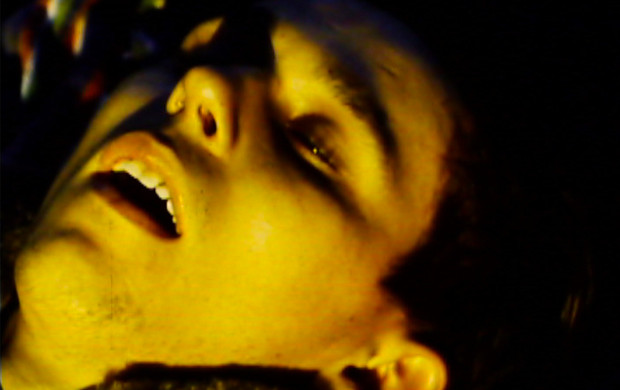I Dance with God
- 2015
- Iran
- 39 minutes
- Kurdish
Somewhere in Iranian Kurdistan, Ali Badri is set on peeling off his apple skin in one piece – a proverb promises a young girl to the man who does so… Opening on a light-hearted, tender conversation between the old tailor and his wife as they dine, looking down on their village, I Dance with God immediately sets the affable and exuberant tone of its subject’s portrait. Not only does the cheery octogenarian hum bawdy love songs at every step, but he seems to draw his zest for life from a disability that would have snuffed it out in most people. Three months after his marriage, the young postman was blinded in a hunting accident, so he quickly turned to the needle. Finding a balance between day and night, amiable moods and dark clouds passing over the couple, Hooshang Mirzaee infuses sound and image with the acuity of Ali Badri’s senses, whether he is relishing a fruit from his almond tree, planting a tree, doing his gym or begging for the caress of the aftershave that his wife puts on him. But the construction of I Dance with God also advances unobtrusively towards a vertiginous edge: a real edge that the happy Ali often almost falls over, though he usually manages quite well; and the rockier and more tragic edge of grief that strikes the couple and belatedly reappears, strewn with wild flowers of many colours. (Charlotte Garson)
- Production : Dafilm
- Editing : Hooshang Mirzaee
- Sound : Jafar Khoshkho
- Photography : Hooshang Mirzaee
- Copy Contact : Dafilm
